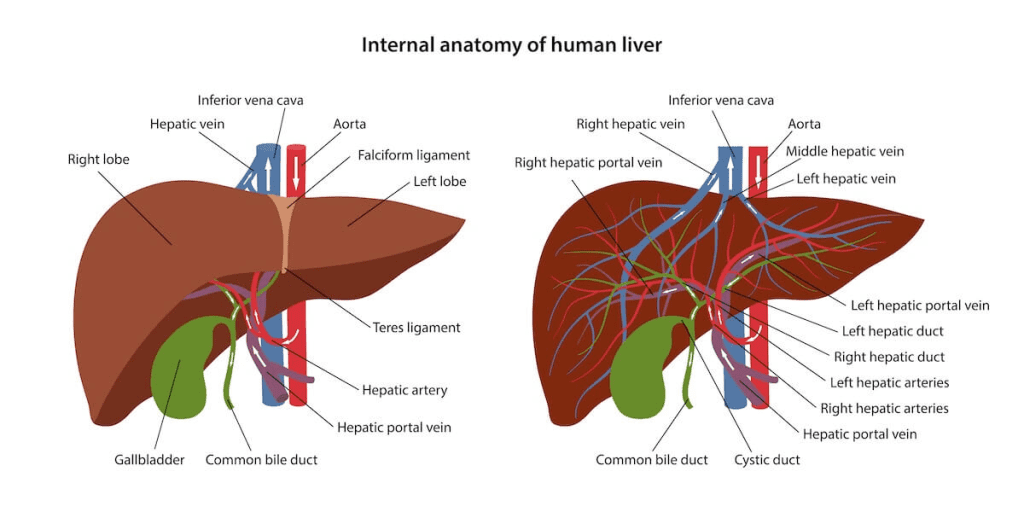Let’s face it—when was the last time you really thought about your liver? Probably not recently. But here’s the truth: your liver is a silent workhorse. It processes everything you eat and drink, filters out toxins, stores vital nutrients, and plays a critical role in keeping your body balanced. When it starts to break down, the signs are often subtle—until it’s too late.
That’s why recognizing the early symptoms of liver damage can be a life-saving move. You don’t need to wait until something “feels serious.” Instead, learning to spot the early warning signs can help you take action before the damage becomes irreversible.
What Exactly Does the Liver Do?

Your liver is the largest internal organ, nestled under your ribcage on the right side of your abdomen. It performs over 500 essential functions—no exaggeration. From producing bile to breaking down medications, storing vitamins, and converting nutrients into usable energy, your liver is basically your body’s ultimate multitasker.
But when the liver gets overloaded—whether from alcohol, viruses, medications, or underlying health issues—it struggles. Over time, damage can snowball into fibrosis, cirrhosis, or even complete liver failure.
Common Causes of Liver Damage
The biggest culprits behind liver damage include:
- Chronic alcohol use
- Hepatitis A, B, or C
- Non-alcoholic fatty liver disease (NAFLD)
- Autoimmune disorders
- Obesity and type 2 diabetes
- Overuse of medications like acetaminophen
- Toxin exposure or certain industrial chemicals
Understanding the root cause is crucial, but even more important is catching the damage early.
1. Abdominal Discomfort or Dull Pain
One of the earliest signs your liver might be in trouble? A nagging discomfort or ache on the upper right side of your abdomen. It’s usually subtle—more of a dull, pressing sensation than a sharp pain. People often mistake it for a pulled muscle or gas, but if it lingers, it could be your liver waving a red flag.
Video : Harvard Doctor: 5 Signs of Fatty Liver Disease You Can Check at Home ‼️🚨
Why does this happen? As the liver becomes inflamed or swollen from damage, it pushes against the surrounding tissues, causing discomfort. Don’t ignore this sign, especially if it happens frequently.
2. Constant Fatigue
Feeling drained all the time—even after a full night’s sleep? Chronic fatigue could be your body’s cry for help. When your liver isn’t functioning properly, it can’t process toxins efficiently. As they build up in your bloodstream, they start to affect everything, including your energy levels.
Liver-related fatigue isn’t just physical. It’s the kind of exhaustion that seeps into your bones, where no amount of caffeine can help.
3. Nausea or Frequent Vomiting
Sure, the occasional upset stomach happens to everyone. But persistent nausea or unexplained vomiting might indicate that your liver is struggling. When toxins build up in the blood due to impaired liver function, your digestive system gets thrown out of balance.
This symptom is especially concerning if it comes with a lack of appetite or unexplained food aversions. Don’t brush it off—your gut might be trying to tell you something serious.
4. Loss of Appetite
Have your eating habits changed drastically? If you’ve noticed a decreased interest in food without dieting, or you’re skipping meals unintentionally, your liver could be to blame.
When liver damage progresses, it can interfere with hormone regulation and digestion. This affects how hungry you feel and how your body processes nutrients. In some cases, people with liver damage even experience early satiety—feeling full after eating very little.
5. Unexplained Weight Loss

Rapid or unintentional weight loss is always a reason to investigate. When paired with any of the above symptoms, it becomes a huge red flag for liver dysfunction. Because the liver helps regulate fat metabolism and nutrient absorption, any disruption in its normal function can cause drastic shifts in weight.
In some cases, this happens so subtly that you don’t even notice until your clothes fit differently. If your weight is dropping and you’re not sure why, your liver might be involved.
Advanced Symptoms You Shouldn’t Ignore
If early warning signs are missed or ignored, liver damage can progress to a critical stage. Advanced liver disease or liver failure may include symptoms like:
- Jaundice (yellowing of the skin and eyes)
- Swelling in the legs and ankles (edema)
- Itchy skin that worsens at night
- Confusion or mental fog (hepatic encephalopathy)
- Dark urine and pale stools
- Persistent headaches
- Severe abdominal pain or bloating
These symptoms signal that immediate medical attention is needed. Once liver function declines significantly, reversing the damage becomes extremely difficult.
How to Prevent Liver Damage Before It Starts
Prevention always beats cure. The best way to protect your liver is to make lifestyle choices that reduce strain on this vital organ. Here are some practical steps:
Video : Doctor Explains 11 Skin Signs of Liver Disease / Fatty Liver / Cirrhosis
- Limit alcohol: Even social drinking adds up. Know your limits and drink mindfully.
- Maintain a healthy weight: Obesity is a major driver of non-alcoholic fatty liver disease.
- Eat a liver-friendly diet: Focus on whole foods, greens, lean proteins, and healthy fats. Avoid processed foods, sugar, and excessive carbs.
- Exercise regularly: Moderate physical activity helps burn liver fat and improve circulation.
- Avoid toxins: Be cautious with household chemicals, pesticides, and aerosol sprays.
- Watch your meds: Many common drugs (especially acetaminophen) can harm your liver when taken in high doses.
- Get vaccinated: Protect yourself from hepatitis A and B with available vaccines.
- Know your history: If you have a family history of liver disease or diabetes, screen regularly.
The Takeaway: Your Liver Deserves More Attention
Your liver works 24/7—filtering toxins, balancing hormones, breaking down fats, and storing nutrients. But it rarely gets the recognition it deserves. By the time symptoms of liver damage show up, things may already be serious.
That’s why awareness matters. Whether it’s a dull pain in your side, constant tiredness, or unexplained weight loss, pay attention to the signals your body sends. If something feels off, don’t wait—talk to your doctor and request a liver function test.
Remember, you only get one liver. Take care of it now so it can take care of you for years to come.


